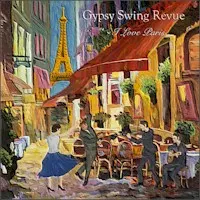Styles: Piano Jazz
Year: 2006
File: MP3@320K/s
Time: 64:24
Size: 148,7 MB
Art: Front
(7:25) 1. Beyond The Blue Horizon
(6:51) 2. Brother, Can You Spare A Dime?
(6:10) 3. Button Up Your Overcoat
(8:15) 4. Stars Fell On Alabama
(7:55) 5. I Love Paris
(6:08) 6. It's A Blue World
(6:34) 7. I Apologize
(7:57) 8. Moon Love
(7:05) 9. Sleep Warm
Year: 2006
File: MP3@320K/s
Time: 64:24
Size: 148,7 MB
Art: Front
(7:25) 1. Beyond The Blue Horizon
(6:51) 2. Brother, Can You Spare A Dime?
(6:10) 3. Button Up Your Overcoat
(8:15) 4. Stars Fell On Alabama
(7:55) 5. I Love Paris
(6:08) 6. It's A Blue World
(6:34) 7. I Apologize
(7:57) 8. Moon Love
(7:05) 9. Sleep Warm
One great thing about jazz is that an artist is more likely to be measured by his or her career arc, rather than the success or failure of a single release. It also means that, when an artist releases a career-defining record, subsequent releases are less likely to measured against it. Instead, they are seen within the broader context of the artist's larger body of work. Take pianist Bill Carrothers, whose Armistice 1918 found its way onto many a reviewer's 2004 top ten list. An ambitious work that integrated Carrothers' not inconsiderable musical talents with his interest in history, the sprawling two-disc release also raised the bar for integrating visual arts with music the packaging of the disc by Philippe Ghielmetti of the sadly now-defunct Sketch Records was as beautiful as the music's narrative was vivid and poignant. That an artist like Carrothers could create such a powerful and moving piece of work at such a relatively early stage in his career clearly portended greater things to come. If Armistice 1918 were a rock record, the industry would be looking for his next step to be even bigger. Thankfully the jazz world is less driven by such concerns. While Carrothers' followup, I Love Paris, may not have the kind of grand ambition of Armistice 1918, it's every bit as compelling just in a smaller, more intimate way. Moving ahead in time from the music of the First World War, Carrothers brings together nine tracks from the 1920s through 1940s; some familiar, like Cole Porter's title track, others less well-known by name, but like some of the music on Armistice 1918 such a part of the larger collective unconscious that one recognizes them without actually knowing them. And, true to form, Carrothers manages to show just how far you can stretch the mainstream while still remaining within its general boundaries.
Carrothers is a harmony-rich player with an uncanny ability to see the greater potential of both hands in concert. While some pianists are fairly linear with their right hand and eke out accompaniment with their left and there are times when Carrothers is more linear he has a vivid sense of larger voicings, like British pianist John Taylor, sometimes creating eight- and nine-part harmonies that move smoothly, and in ways that makes every subsequent note feel perfectly logical, yet somehow unpredictable. Bassist Nicolas Thy and drummer Dré Pallemaerts are intuitive players, supporting Carrothers as much as pushing him into areas of further possibility. While an underlying sense of swing pervades the entire set, the trio also takes more liberties; the title track and "Moon Love serve as examples of how familiar tunes can be re-imagined recognizable yes, but undeniably new as well. With a gradually growing and significant body of work, Carrothers is clearly an artist to keep an eye on, and I Love Paris is another fine addition that skirts the mainstream while providing plenty of surprises for the more adventurous at heart. ~ John Kelman https://www.allaboutjazz.com/i-love-paris-bill-carrothers-pirouet-records-review-by-john-kelman.php?width=192
Personnel: Bill Carrothers (piano), Nicolas Thys (bass), Dré Pallemaerts (drums).
I Love Paris




















